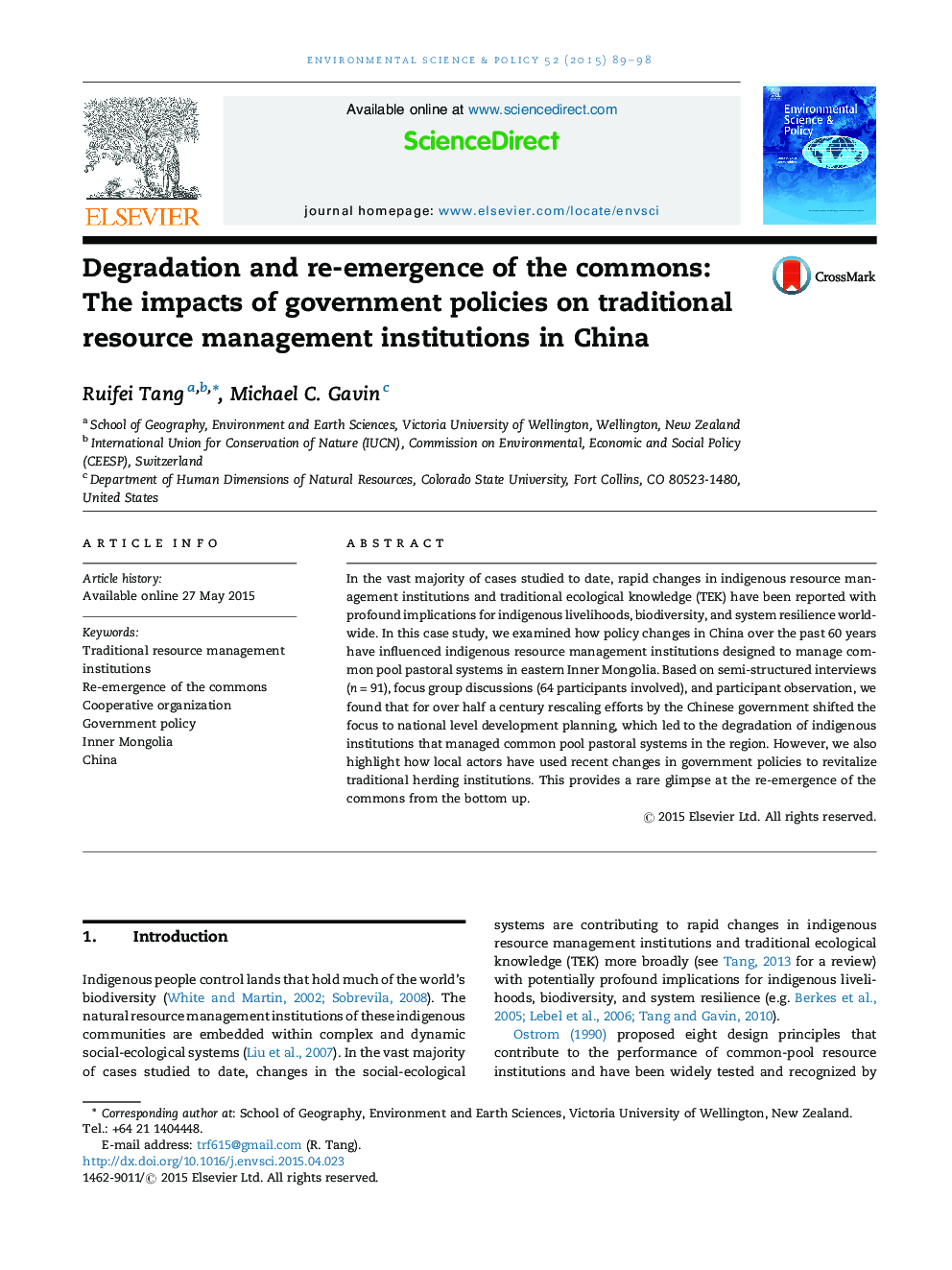| Article ID | Journal | Published Year | Pages | File Type |
|---|---|---|---|---|
| 7467217 | Environmental Science & Policy | 2015 | 10 Pages |
Abstract
In the vast majority of cases studied to date, rapid changes in indigenous resource management institutions and traditional ecological knowledge (TEK) have been reported with profound implications for indigenous livelihoods, biodiversity, and system resilience worldwide. In this case study, we examined how policy changes in China over the past 60 years have influenced indigenous resource management institutions designed to manage common pool pastoral systems in eastern Inner Mongolia. Based on semi-structured interviews (n = 91), focus group discussions (64 participants involved), and participant observation, we found that for over half a century rescaling efforts by the Chinese government shifted the focus to national level development planning, which led to the degradation of indigenous institutions that managed common pool pastoral systems in the region. However, we also highlight how local actors have used recent changes in government policies to revitalize traditional herding institutions. This provides a rare glimpse at the re-emergence of the commons from the bottom up.
Keywords
Related Topics
Physical Sciences and Engineering
Energy
Renewable Energy, Sustainability and the Environment
Authors
Ruifei Tang, Michael C. Gavin,
